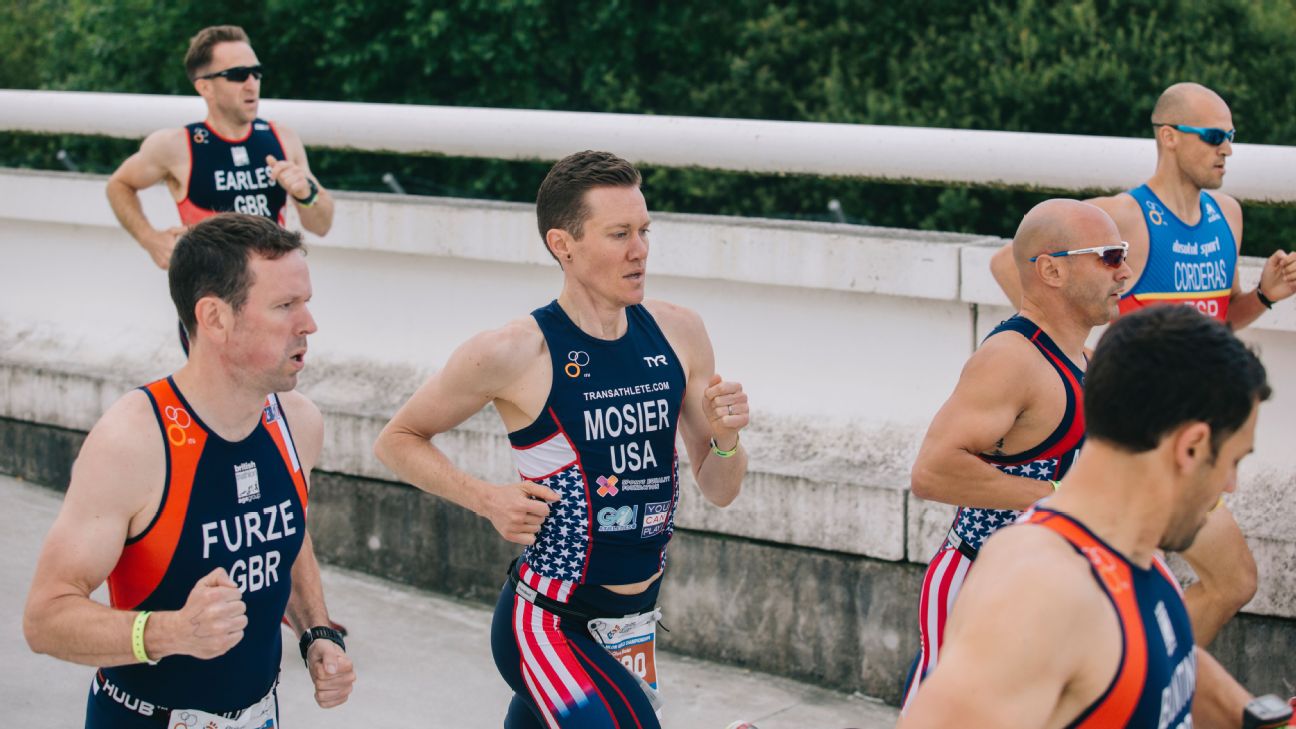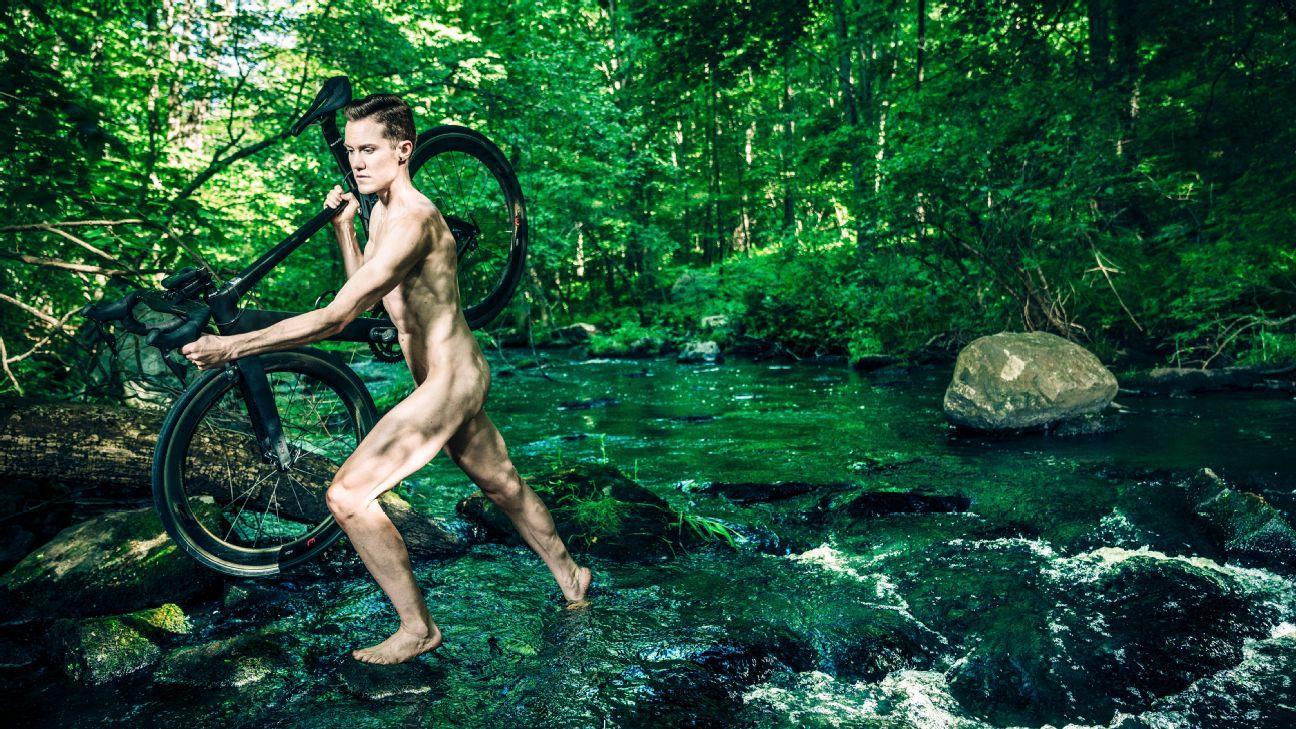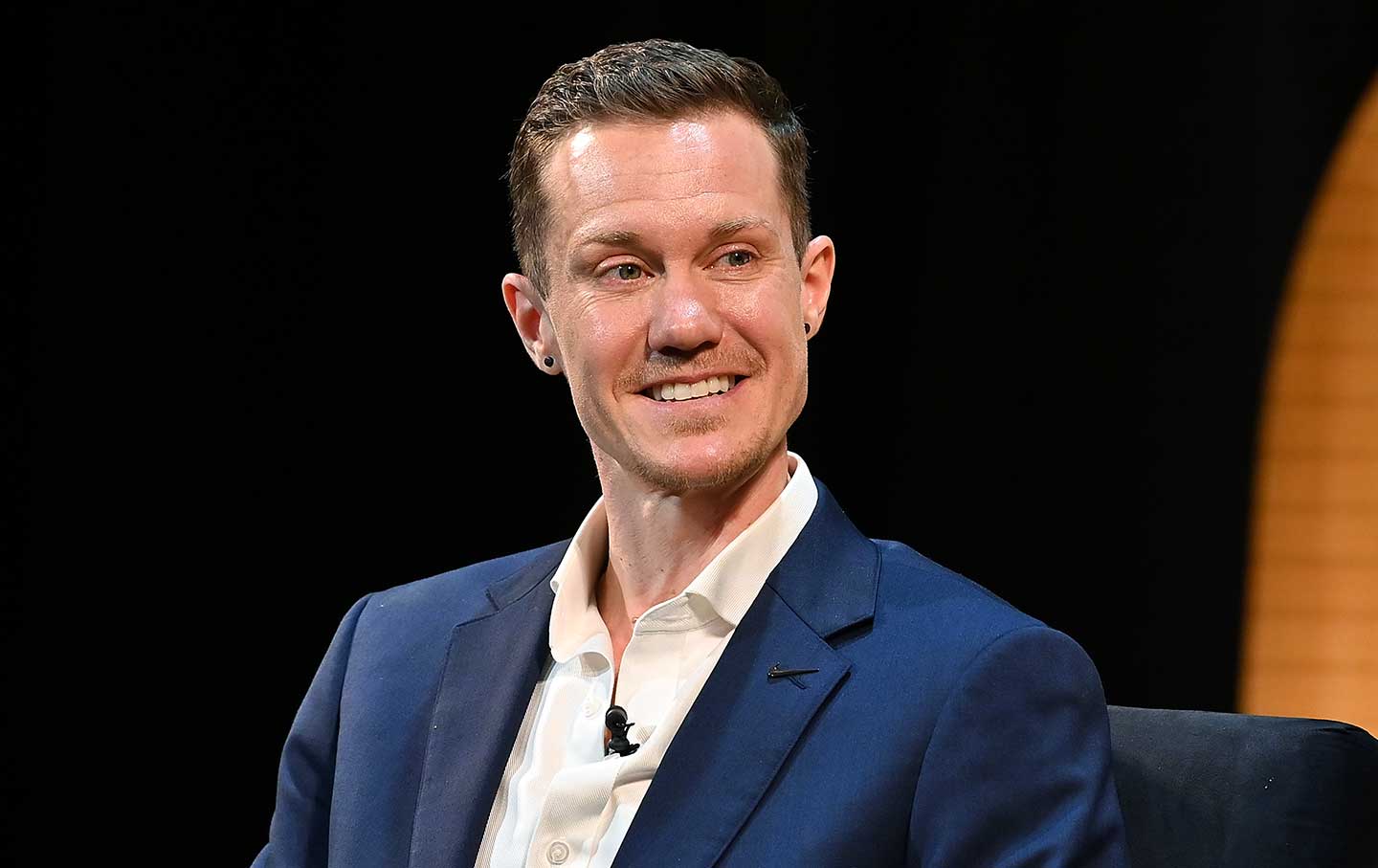By: Zachary Draves
Tough, trailblazing, tenacious, and talented are just some of the qualities that perfectly encapsulate the spirit and vitality of duathlete, triathlete, and advocate Chris Mosier.
The Chicago-based ironman has been breaking barriers and shattering stereotypes from the time he was a child.
He knew in his formative years that his gender identity (male) and his biological sex (female) didn’t comport and it wasn’t until 2010 where he fully transitioned into his whole self and began his athletic journey on his own terms. 
(Courtesy: ESPN.com)
His crowning achievement came in 2015 when he became the first openly transgender man to make Team USA and to compete in international competition the following year.
In order to get there, he had to take on the Stockholm Consensus, a policy implemented by the International Olympic Committee in 2003 which stated that “individuals undergoing sex reassignment from male to female after puberty (and the converse) be eligible for participation in female or male competitions, respectively, under the following conditions:”
- Surgical anatomical changes have been completed, including external genitalia changes and gonadectomy
- Legal recognition of their assigned sex has been conferred by the appropriate official authorities
- Hormonal therapy appropriate for the assigned sex has been administered in a verifiable manner and for two years after gonadectomy.
Under these rules, he was uncertain if he was eligible to compete in the Duathlon Age Group World Championship Race in Spain in June 2016 even though he qualified as he was. /cdn.vox-cdn.com/uploads/chorus_image/image/59360821/mosier_wc.0.jpg)
(Courtesy: OutSports)
However, he was able to change the policy and the IOC updated their guidelines that would allow for at least trans male athletes to compete as they are without restriction.
Since then, Chris has cultivated space within his respective sport and his talents reflect the vibrancy and dynamism that trans athletes posses that are no different than that of cisgender athletes who epitomize those same tangibles.
In other words, he is simply one of the best the world has to offer.
His athletic pedigree speaks for itself.
In 2016, he was sponsored by Nike and featured in his own commercial which debuted on prime time during the Rio Games

(Courtesy: Youtube.com)
That same year, he was the first trans athlete featured in ESPN the Magazine’s Body Issue.
(Courtesy: ESPN.com)
In 2019, Chris won two national championships in race walking.
In 2020, he became the first transgender athlete to compete in the Olympic Trials in any sport in a category different than their sex assigned at birth.
He has dreams of Olympic glory in his future and has been working tirelessly to reach the mountaintop.
All the while he has been a leading go-to voice on the issue of trans inclusion in sports which couldn’t be more timely. 
(Courtesy: The Nation)
He founded the website transathlete.com that provides resources to athletes, coaches, teachers, and administrators on trans inclusion in sports at all levels of play.
In this current moment with anti-trans rhetoric and violence at alarming levels and 10 states with Texas being the most recent passing laws that ban trans youth from competing in sports that match with their gender identity, the presence of Chris is not only comforting but life-saving.
I had the honor to talk to him to get his thoughts on this scourge of anti-trans sentiment and its ripple effects, combating the myths and acknowledging the realities, and his hopes for effective political resistance in 2022.
What do you make of all this and what does this say about what we chose to prioritize as a country right now?
It’s tough. We are really in a tough spot right now in terms of inclusion for transgender people in general but especially trans athletes. We have seen in the last two years that trans people and especially young people have become the targets of politicians across the country. It is not for any specific reason of any problem, it really is a political issue and the politicization of transgender people in general but transgender people in sports specifically. Unfortunately, these are gateway bills and what I mean by that is that these are bills being introduced not just to hurt people who play sports but to hurt the entire trans and non-binary community down the road. These bills are being introduced with bills that would not allow trans people access to gender-affirming care, health care that we absolutely need to show up in this world and be safe and healthy.
Some of these bills are packaged with bills that would prevent transgender people from changing their name or their gender markers on things like birth certificates or driver’s licenses. If trans people can’t show up authentically as who they are, it makes it much more difficult for us to get on a plane, get jobs, and to access services that require the showing of those identification documents. So really the issue of trans people in sports has become a wedge issue for politicians to divide their voter base and it has also tried to police and rule trans people out of public view.
What is the biggest misconception about trans athletes and who trans athletes are?
Well, I think the first misconception is that we have to choose between inclusion in sports and fairness in sports and it doesn’t have to be that way. It is possible to include trans people in sports and to have sports as fair as any game actually is. That is the first misconception I think. The other is that there is this narrative that trans people are dominating sports or that the inclusion of trans women in women’s sports will be the end of women’s sports. That also is deeply untrue. We don’t have trans people dominating in any level of sport at any level of play. We can see that in states of state with lawmakers not being able to cite a single example of trans athletes in their state or of trans athletes dominating in sports. So it is just not happening.
The other thing is that the media has largely driven this narrative about trans people in sports and has done a horrible job at covering these issues. Most of the articles and the stories that we read are talking about trans people in sports as if we are a problem without having talked to an actual trans person or talking to a group that is advocating for trans people in sports. What we see are a lot of propaganda pieces from people who are opposed to our participation. I think that the misconceptions that have been driven by headlines and tweets have been taken as fact. That is the most troubling part of where we are at right now.
Obviously this is going to be a wedge issue next year with the midterm elections and this will be brought up and discussed. What would you like to see done at the grassroots level and political level where not only trans athletes but allies of the trans community can take this moment as a force for good politically?
I would love for more conversations on this topic to include trans people and include our voices, our opinions, and our stories from our mouths and I think that is very important because it is very easy for people to, for lack of a better word, hate trans people, to discriminate against us, and to have some thoughts about us. If you have not talked to or met a trans person before then the sad truth is that many people in America have never met a trans person, never had a conversation with us, or interacted with us, then that makes it easier to say that we don’t belong in certain spaces. So what I hope is that allies will use their platforms to pass the mic to trans people to elevate this conversation and to share and repost that is accurate about trans people and trans people in sports specifically. I think on the federal level we need protections so we need to pass The Equality Act. We cannot have the patchwork of policies that we have right now and the ability for states to discriminate against trans people and trans youth. So we need those protections and I think at the grassroots level we have been fighting so hard. Advocates in Texas have defeated the sports bill multiple times. There were so many bills that came up in Texas that it was an exhausting thirteen months for those people on the ground there fighting these bills not just about sports but in all areas of trans people participating in Texas life. At the end of the day, they brought back special sessions to ensure that the anti-trans sports bill passed. So lawmakers are really dedicated to this topic wasting valuable taxpayer’s money and time and energy when there are so many more important things that lawmakers should be discussing. So at the grassroots level that work can be done and I think what can really support us and the work we are doing is sharing your platform, elevating those voices, raising awareness, and if you have the capacity to donate financially, that is always welcomed especially for those small organizations usually put together by queer and trans people who are fighting for their rights across the country right now.
Chris Mosier is uncompromising, unrelenting, and unapologetically trans.
Check out transathlete.com for more information on how you can be part of the solution https://www.transathlete.com/


 NFL
NFL





